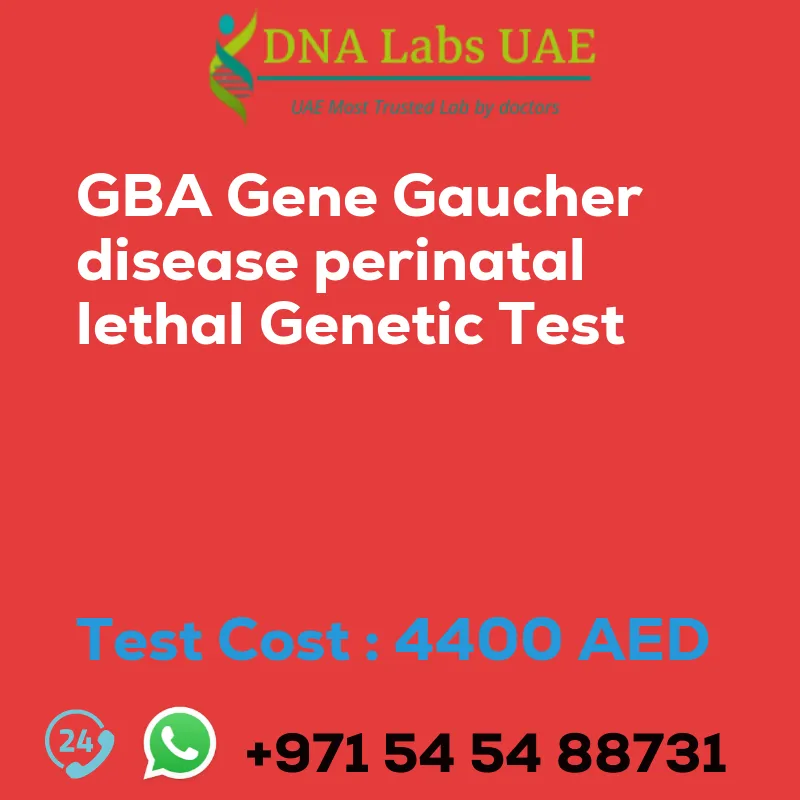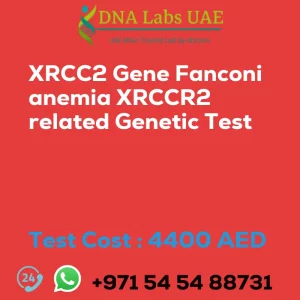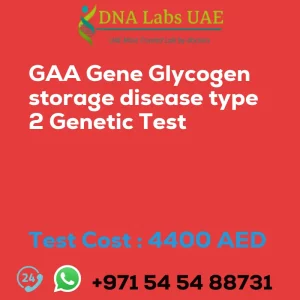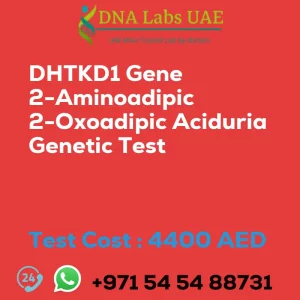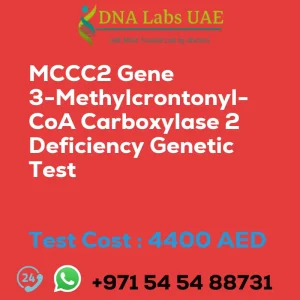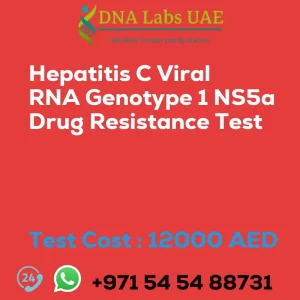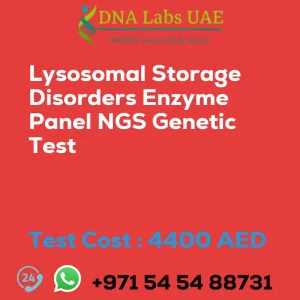GBA Gene Gaucher Disease Perinatal Lethal Genetic Test
Welcome to DNA Labs UAE, where we offer a comprehensive genetic testing service, including the GBA Gene Gaucher disease perinatal lethal genetic test. This test is designed to identify mutations in the GBA gene that are associated with the severe form of Gaucher disease known as perinatal lethal Gaucher disease.
Test Components
- Price: 4400.0 AED
- Sample Condition: Blood or Extracted DNA or One drop Blood on FTA Card
- Report Delivery: 3 to 4 Weeks
- Method: NGS Technology
- Test Type: Metabolic Disorders
- Doctor: General Physician
- Test Department: Genetics
Pre-Test Information
Prior to undergoing the GBA Gene Gaucher disease perinatal lethal genetic test, it is important for the patient to provide their clinical history. Additionally, a genetic counseling session may be conducted to draw a pedigree chart of family members affected with Gaucher disease, perinatal lethal.
Test Details
GBA gene Gaucher disease is a rare genetic disorder that affects the body’s ability to break down a fatty substance called glucocerebroside. This buildup of glucocerebroside leads to a variety of symptoms, including enlargement of the liver and spleen, bone abnormalities, anemia, and an increased risk of infections. Perinatal lethal refers to a severe form of Gaucher disease that is typically diagnosed during pregnancy or shortly after birth. Babies with perinatal lethal Gaucher disease often have very severe symptoms and typically do not survive beyond the first few months of life.
NGS genetic testing, also known as next-generation sequencing, is a type of genetic test that can analyze multiple genes at once to identify mutations or changes in the DNA. This type of testing is particularly useful for diagnosing rare genetic disorders like Gaucher disease, as it can provide a comprehensive analysis of multiple genes involved in the disease.
In the case of perinatal lethal Gaucher disease, NGS genetic testing can be used to identify mutations in the GBA gene that are associated with the severe form of the disease. This can help provide an accurate diagnosis and allow for appropriate management and treatment options to be considered for the affected baby and their family.
| Test Name | GBA Gene Gaucher disease perinatal lethal Genetic Test |
|---|---|
| Components | |
| Price | 4400.0 AED |
| Sample Condition | Blood or Extracted DNA or One drop Blood on FTA Card |
| Report Delivery | 3 to 4 Weeks |
| Method | NGS Technology |
| Test type | Metabolic Disorders |
| Doctor | General Physician |
| Test Department: | Genetics |
| Pre Test Information | Clinical History of Patient who is going for GBA Gene Gaucher disease, perinatal lethal NGS Genetic DNA Test A Genetic Counselling session to draw a pedigree chart of family members affected with Gaucher disease, perinatal lethal |
| Test Details |
GBA gene Gaucher disease is a rare genetic disorder that affects the body’s ability to break down a fatty substance called glucocerebroside. This buildup of glucocerebroside leads to a variety of symptoms, including enlargement of the liver and spleen, bone abnormalities, anemia, and an increased risk of infections. Perinatal lethal refers to a severe form of Gaucher disease that is typically diagnosed during pregnancy or shortly after birth. Babies with perinatal lethal Gaucher disease often have very severe symptoms and typically do not survive beyond the first few months of life. NGS genetic testing, also known as next-generation sequencing, is a type of genetic test that can analyze multiple genes at once to identify mutations or changes in the DNA. This type of testing is particularly useful for diagnosing rare genetic disorders like Gaucher disease, as it can provide a comprehensive analysis of multiple genes involved in the disease. In the case of perinatal lethal Gaucher disease, NGS genetic testing can be used to identify mutations in the GBA gene that are associated with the severe form of the disease. This can help provide an accurate diagnosis and allow for appropriate management and treatment options to be considered for the affected baby and their family. |

